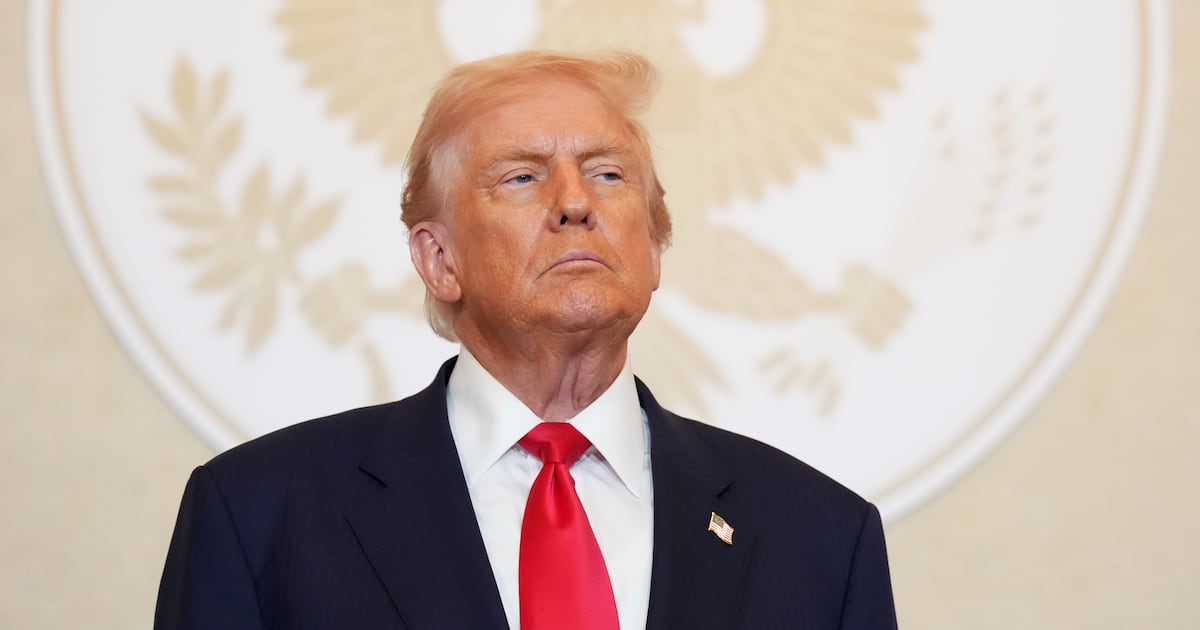World
South Korea Faces $350 Billion Investment Demand from Trump

South Korea is navigating a complex diplomatic landscape as President Donald Trump arrives for the final leg of his Asian tour. During his visit, Trump is pressing for a substantial investment of $350 billion from South Korea, a move he links to reducing tariffs on South Korean goods. This demand poses a significant challenge for President Lee Jae-myung as he prepares for discussions ahead of the Asian Pacific Economic Cooperation (APEC) summit in Gyeongju on March 15, 2025.
The proposed investment represents approximately 6.5 percent of South Korea’s Gross Domestic Product (GDP). Lee’s administration has indicated a willingness to consider such an investment but prefers that it take the form of loans to Korean companies looking to expand operations in the United States. In contrast, Trump is requesting the full amount to be delivered upfront, either in cash or as equity in those companies.
In an interview with Bloomberg, Lee highlighted the complexities surrounding the negotiation, stating, “The method of investment, the amount of investment, the timeline and how we will share the losses and divide the dividends — all of these remain sticking points.” He emphasized the need for a deal that does not severely impact South Korea’s economy, asserting that while the U.S. will aim to maximize its interests, it should not do so at the expense of South Korea’s financial stability.
Economic Implications and Industry Concerns
The ongoing negotiations come at a critical time for South Korean car manufacturers. They currently find themselves at a disadvantage compared to Japanese counterparts, who recently agreed to a $550 billion investment in the U.S. in exchange for reduced tariffs of 15 percent. Economists warn that accepting Trump’s terms could destabilize South Korea’s economy, which is still reeling from recent challenges, including a controversial immigration raid.
In September 2024, U.S. immigration officials conducted a raid on a Hyundai plant in Georgia, resulting in the arrest of over 300 workers for alleged visa violations. This event shocked the Korean community and raised concerns about worker treatment in the U.S. Lee noted that the incident has caused significant trauma, stating, “Some workers do not want to go back.” He expressed concern that without adequate measures to protect these workers, plans for new factories in the U.S. could face serious delays.
Upcoming Meetings and Diplomatic Landscape
As Trump prepares for his meeting with Chinese Premier Xi Jinping on March 16, 2025, speculation has also arisen regarding a potential meeting with North Korean leader Kim Jong-un. Trump mentioned, “I put it out over the internet that I’m coming to South Korea and if he would like to meet, I’m open to it.” Despite this openness, there has been no indication from Pyongyang of a willingness to engage in talks.
The outcomes of these diplomatic engagements will not only shape U.S.-South Korea relations but also impact the broader geopolitical landscape in the Asia-Pacific region. As negotiations unfold, the stakes remain high for both nations, with economic and political consequences hanging in the balance.
-

 Top Stories3 months ago
Top Stories3 months agoTributes Surge for 9-Year-Old Leon Briody After Cancer Battle
-

 Entertainment4 months ago
Entertainment4 months agoAimee Osbourne Joins Family for Emotional Tribute to Ozzy
-

 Politics4 months ago
Politics4 months agoDanny Healy-Rae Considers Complaint After Altercation with Garda
-

 Top Stories4 months ago
Top Stories4 months agoIreland Enjoys Summer Heat as Hurricane Erin Approaches Atlantic
-

 World5 months ago
World5 months agoHawaii Commemorates 80 Years Since Hiroshima Bombing with Ceremony
-

 Top Stories3 months ago
Top Stories3 months agoNewcastle West Woman Patricia Foley Found Safe After Urgent Search
-

 Top Stories5 months ago
Top Stories5 months agoFianna Fáil TDs Urgently Consider Maire Geoghegan-Quinn for Presidency
-

 World5 months ago
World5 months agoCouple Convicted of Murdering Two-Year-Old Grandson in Wales
-

 World5 months ago
World5 months agoGaza Aid Distribution Tragedy: 20 Killed Amid Ongoing Violence
-

 World5 months ago
World5 months agoAristocrat Constance Marten and Partner Convicted of Infant Murder
-

 Top Stories4 months ago
Top Stories4 months agoClimbing Errigal: A Must-Do Summer Adventure in Donegal
-

 Top Stories4 months ago
Top Stories4 months agoHike Donegal’s Errigal Mountain NOW for Unforgettable Summer Views









